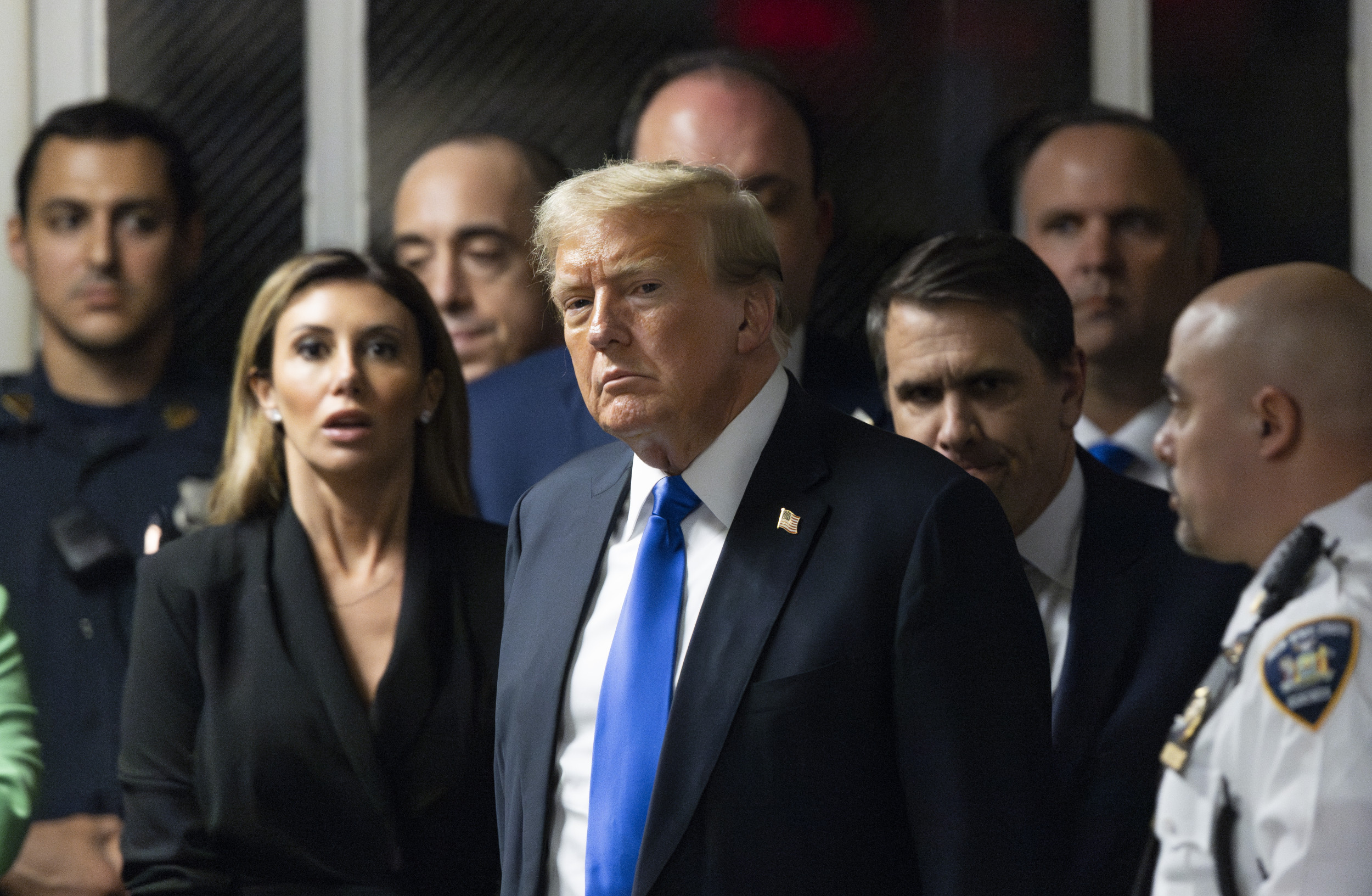George W. Bush's State of the Union address in January 2002 was nothing if not a victory speech. The Afghan war had just been won. "The American flag flies again over our embassy in Kabul," Bush told the joint session of Congress amid the constant punctuation of enthusiastic ovations. "Terrorists who once occupied Afghanistan now occupy cells at Guantánamo bay. (Applause.) And terrorist leaders who urged followers to sacrifice their lives are running for their own. (Applause)."
That speech—the "Axis of Evil" speech—makes strange but very informative reading today, in light of the nuclear test announcement in North Korea this week, as well as what's happened in Iran, in Iraq and to almost 2,800 Americans killed and 21,000 wounded in the line of duty fighting Bush's wars since those words were spoken.
The celebration of victory over the Taliban and Al Qaeda in 2002 was not enough, not nearly enough, for Bush and his team. The C-student president had found his mission: "History has called America and our allies to action, and it is both our responsibility and our privilege to fight freedom's fight," he declared. The electrifying message in that call, for the prodigal pilot of the Texas National Guard, the former party boy from Yale, was to remake the American people in a sterner, more disciplined image. "For too long our culture has said, 'If it feels good, do it.' Now America is embracing a new ethic and a new creed: 'Let's roll'," Bush said, evoking the memories of those brave passengers fighting for their lives against Al Qaeda's madmen on United Airlines Flight 93.
"In the sacrifice of soldiers, the fierce brotherhood of firefighters, and the bravery and generosity of ordinary citizens," Bush went on, "we have glimpsed what a new culture of responsibility could look like. We want to be a nation that serves goals larger than self. We've been offered a unique opportunity, and we must not let this moment pass."
But … the fact that the Afghan war had been won so quickly presented a problem. How could a "new culture of responsibility" be built on the basis of a fight that had been so brief and, well, so cheap in American blood and money?
No, this would have to be just the start of a long and glorious struggle. "Our war on terror is well begun, but it is only begun," said Bush. "This campaign may not be finished on our watch—yet it must be and will be waged on our watch. We can't stop short."
So he identified the new battleground, one less geographical than metaphysical. This was a fight, Bush said, in which "God is near." This is a battle against "evil" and, more specifically, its incarnation—Iraq, Iran, North Korea "and their terrorist allies" who "constitute an Axis of Evil, arming to threaten the peace of the world."
They were seeking weapons of mass destruction, Bush declared unequivocally, and they "posed a grave and growing danger." Moving into the conditional tense, which none of those applauding seemed to notice, Bush said these countries "could provide these arms to terrorists, giving them the means to match their hatred. They could attack our allies or attempt to blackmail the United States. In any of these cases, the price of indifference would be catastrophic."
If there had been more good intelligence, or if Bush had been intelligent enough to listen to what there was, he might have discovered that there was no very reliable information to underpin his charges against Iraq; that Iran's supposed weapons program was completely unproven, and that North Korea's ambitions might still be subject to change, if the right incentives were offered . What was needed was statecraft and diplomacy of a high level. But Bush, in this speech and in his actions, turned the famous dictum of Carl von Clausewitz on its head: diplomacy became nothing more than war by other means. And as such, it has failed.
If the president had read and thought about Sun Tzu on "The Art of War" (because, of course, it's the thinking that counts, as much as the reading), he might have come across this wonderfully well-considered advice: "Advance knowledge cannot be gained from ghosts and spirits, inferred from phenomena, or projected from the measures of Heaven, but must be gained from men for it is the knowledge of the enemy's true situation."
War is not a metaphysical undertaking. Nor is it a spiritual exercise. In a democracy, the notion that war can be used as social experiment is simply unacceptable. Yet, we accepted. Our senators and representatives stood and applauded.
And so, here we are. North Korea has exploded a small nuclear device. Iran is well on its way to developing the technology to build one if it wants (while saying it doesn't). And, yes, the regime in Iraq has changed, but the failed state that replaced it has become an infinitely more dangerous terrorist training ground, a clearing house for corruption and a cloaca breeding international radicalism.
As for the culture of responsibility, there is nothing new about it. We see it still, as we always have, in our firefighters, our soldiers, our police and the good people who reach out every day in countless ways to help and protect each other in the United States. Where we have never seen it is in the administration of George W. Bush, so obsessed with its glorious fight against evil that it failed to contain the burgeoning dangers in the real world all around us.
Uncommon Knowledge
Newsweek is committed to challenging conventional wisdom and finding connections in the search for common ground.
Newsweek is committed to challenging conventional wisdom and finding connections in the search for common ground.





